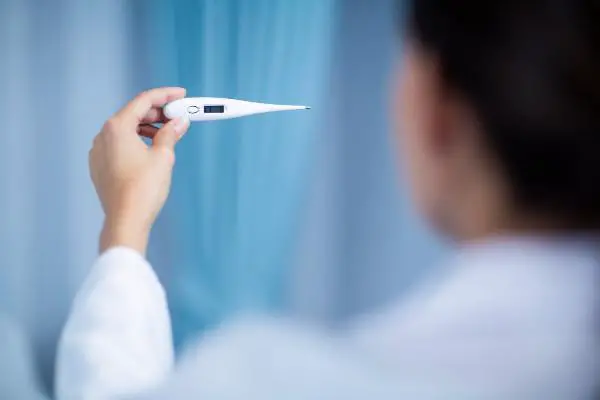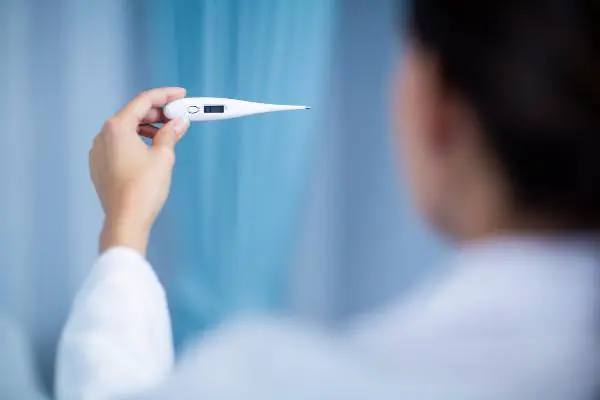Introduction
Meningitis is a serious infection that can affect the brain and spinal cord, and it can also lead to hearing loss in some cases. As a concerned parent, it’s important to understand the symptoms of meningitis, as well as the ways in which it can impact your child’s hearing. In this blog post, we’ll explore the link between meningitis and hearing loss, and provide helpful information and resources for parents of children with hearing loss.
Audien BTE (Behind the Ear) Rechargeable OTC Hearing Aid
Experience Unparalleled Sound Quality with the New Audien BTE (Behind the Ear) hearing amplifier. Elevate your hearing with the clearest, highest-quality sound available in an over-the-counter hearing assistance device. Designed by Audien, renowned for their sleek and comfortable hearing devices, the BTE model ensures exceptional hearing performance. It features advanced digital technology, including four environmental modes, background noise reduction, feedback cancellation, and two directional microphones per unit (four in total).
Say Goodbye to Missed Conversations and Hello to Superior Sound. Audien hearing devices excel at amplifying speech while reducing background noise, allowing you to effortlessly engage in conversations with friends and family. Experience the consistent, long-lasting, and sharp sound quality without any whistling or feedback issues. With customizable volume control, you can easily adjust the amplification to meet your individual needs. These devices are perfect for enhancing high tones and improving TV dialogue clarity.
Rechargeable for Uninterrupted Use. The Audien BTE hearing amplifiers are 100% rechargeable, offering convenience and freedom from the hassle of tiny button batteries. With wireless magnetic charging technology, you can enjoy a 20-hour battery life with just a quick two-hour charging time. The included charging case provides up to three full charges, giving you a total of 60 hours of amplified sound. Simply place the devices in the case, and they will wirelessly charge, ensuring you’re always ready to hear your best. Experience the ease and reliability of Audien sound amplifiers, ideal for individuals with dexterity issues or those tired of constantly purchasing and replacing batteries.
The Link Between Meningitis and Hearing Loss
Meningitis can cause inflammation in the brain and spinal cord, which can damage the nerves that transmit sound from the ear to the brain. This can lead to permanent hearing loss in some cases. Children who have had meningitis are at an increased risk for hearing loss, and it’s important for parents to monitor their child’s hearing after a meningitis diagnosis.
Symptoms of Meningitis and Hearing Los
The symptoms of meningitis can include fever, headache, stiff neck, and a rash. In babies and young children, symptoms may also include irritability, lethargy, and poor feeding. If you suspect that your child may have meningitis, it’s important to seek medical attention right away. Early diagnosis and treatment can help prevent complications, including hearing loss.
Diagnosis and Treatment fo Meningitis and Hearing Loss
If your child has been diagnosed with meningitis, it’s important to work closely with your healthcare provider to manage their care. This may include hospitalization, antibiotics, and other supportive measures. If hearing loss is suspected, your child may be referred to an audiologist for testing and treatment.
Support and Resources for Meningitis and Hearing Loss
For parents of children with hearing loss, it’s important to access the resources and support needed to help your child thrive. This may include early intervention services, assistive devices like hearing aids and cochlear implants, and support groups for families of children with hearing loss. By connecting with healthcare providers and support groups, parents can access the information and guidance needed to make informed decisions about their child’s care.
The Link Between Meningitis and Hearing Loss
Meningitis is a serious infection that can affect the brain and spinal cord, leading to various complications, including hearing loss. In fact, hearing loss is one of the most common long-term effects of meningitis, with up to 30% of survivors experiencing some degree of hearing loss. The reason for this is that meningitis can damage the structures in the inner ear responsible for hearing, such as the cochlea and the auditory nerve. This damage can range from mild to severe, and can result in difficulty hearing certain sounds, speech, or even total hearing loss.
It is important for parents to be aware of the link between meningitis and hearing loss, and to take steps to protect their children from this serious infection. One of the most effective ways to prevent meningitis is through vaccination. There are vaccines available that can protect against several types of meningococcal bacteria, which are a common cause of meningitis. Other ways to reduce the risk of meningitis include practicing good hygiene, avoiding contact with infected individuals, and seeking prompt medical attention if you or your child develop symptoms of the infection.
Early Signs of Hearing Loss in Children with Meningitis
Hearing loss is a common long-term effect of meningitis, and it is important for parents to be aware of the early signs of hearing loss in children who have had this infection. Some of the early signs of hearing loss in children may include difficulty understanding speech, turning up the volume on the TV or radio, asking others to repeat themselves, or showing signs of inattention or irritability. It is important to remember that these signs can be subtle, and may not be noticed right away.
If you suspect that your child may be experiencing hearing loss, it is important to seek prompt medical attention. A hearing evaluation can help determine the extent and type of hearing loss, and can guide appropriate interventions to help your child communicate effectively. This may include hearing aids, cochlear implants, or other assistive devices. With early intervention, many children with hearing loss can go on to lead happy, healthy lives.
Coping with Hearing Loss after Meningitis
Hearing loss can be a challenging experience, and it is important for individuals who have had meningitis and are experiencing hearing loss to seek support and guidance. This may include working with a hearing healthcare professional, joining a support group, or seeking counseling services. Additionally, there are many technological devices available that can help individuals with hearing loss communicate more effectively, such as hearing aids, cochlear implants, and assistive listening devices.
It is also important for individuals with hearing loss to take steps to protect their hearing, such as avoiding loud noises and wearing hearing protection when appropriate. Maintaining good overall health, including regular exercise and a healthy diet, can also help promote good hearing health. Finally, it is important to remember that hearing loss does not define you, and that there are many resources available to help you live a fulfilling life despite this challenge.
Conclusion
In conclusion, meningitis is a serious medical condition that can lead to hearing loss if not treated promptly. It is caused by an inflammation of the protective membranes surrounding the brain and spinal cord. The symptoms can be mild or severe, and it is important to seek medical attention immediately if you suspect that you or your child has meningitis.
Hearing loss is one of the most common long-term effects of meningitis. It can occur suddenly or develop over time, and it can affect one or both ears. The degree of hearing loss can vary from mild to profound, and it can have a significant impact on a person’s quality of life.
Prevention is the best approach when it comes to meningitis and hearing loss. Vaccines are available that can help protect against the most common types of meningitis. It is important to ensure that you and your family are up to date with all recommended vaccinations.
If you or your child has been diagnosed with meningitis and is experiencing hearing loss, there are treatments available that can help. Hearing aids, cochlear implants, and other assistive devices can improve hearing and communication abilities. It is important to work closely with a healthcare professional to determine the best course of treatment for your specific needs.
In conclusion, while meningitis and hearing loss can be serious conditions, there are steps you can take to prevent them and manage them if they do occur. By staying informed, seeking medical attention promptly, and working with healthcare professionals, you can help protect your hearing and ensure a healthy future for yourself and your loved ones.

Protected: Unraveling the Mystery: Solutions for Parents Facing Meningitis and Hearing Loss
There is no excerpt because this is a protected post.

Mending the Silence: Empowering Strategies for Conquering Meningitis and Hearing Loss
Introduction As a newly diagnosed individual, it is natural to feel overwhelmed by the idea of living with meningitis and hearing loss. This comprehensive guide






